|
Books Should Be Free Loyal Books Free Public Domain Audiobooks & eBook Downloads |
|
|
Books Should Be Free Loyal Books Free Public Domain Audiobooks & eBook Downloads |
|
History Books |
|---|
|
Book type:
Sort by:
View by:
|
By: Anges Strickland, Elisabeth Strickland (1796-1874) | |
|---|---|
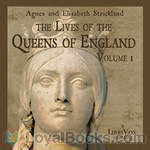 The Lives of the Queens of England
The Lives of the Queens of England
The Lives of the Queens of England is a multi-volumed work attributed to Agnes Strickland, though it was mostly researched and written by her sister Elizabeth. These volumes give biographies of the queens of England from the Norman Conquest in 1066. Although by today's standards, it is not seen as a very scholarly work, the Stricklands used many sources that had not been used before.Volume one includes the biographies of Matilda of Flanders, Matilda of Scotland, Adelicia of Louvaine, Matilda of Boulogne and Eleanora of Aquitaine.(Introduction by Ann Boulais) | |
By: Arthur Graeme West (1891-1917) | |
|---|---|
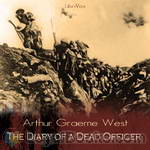 The Diary of a Dead Officer
The Diary of a Dead Officer
Published posthumously in 1919, this collection of diary entries presents a scathing picture of army life and is said to be one of the most vivid accounts of daily life in the trenches. It chronicles West's increasing disillusion with war and his move toward pacifist and atheist beliefs. The final part consists of his powerful war poems, including God, How I Hate You, You Young Cheerful Men, and Night Patrol. West was killed by a sniper in 1917. In view of some of his poems, one wonders if death was not unwelcome. (Introduction adapted from Wikipedia by Ruth Golding) | |
By: Estelle M. Hurll (1863-1924) | |
|---|---|
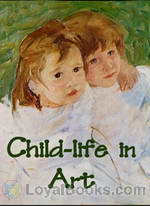 Child-life in Art
Child-life in Art
The poetry of childhood is full of attractiveness to the artist, and many and varied are the forms in which he interprets it. The Christ-child has been his highest ideal. All that human imagination could conceive of innocence and purity and divine loveliness has been shown forth in the delineation of the Babe of Bethlehem. The influence of such art has made itself felt upon all child pictures. It matters not whether the subject be a prince or a street-waif; the true artist sees in him something which is lovable and winning, and transfers it to his canvas for our lasting pleasure. | |
By: George Morang (1866-1937) | |
|---|---|
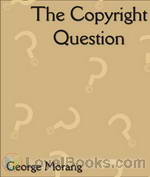 The Copyright Question
The Copyright Question
This is a letter to the Toronto Board of Trade regarding Canadian copyrights. Morang requested an appearance before the Toronto Board of Trade but was denied. This is his letter in response. He wished to make clear his position. | |
By: Arthur Thomas Quiller-Couch (1863-1944) | |
|---|---|
 Adventures in Criticism
Adventures in Criticism
| |
 On The Art of Reading
On The Art of Reading
| |
 The Blue Pavilions
The Blue Pavilions
| |
 Fort Amity
Fort Amity
| |
 From a Cornish Window A New Edition
From a Cornish Window A New Edition
| |
By: Lavinia Honeyman Porter | |
|---|---|
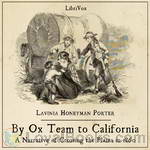 By Ox Team to California - A Narrative of Crossing the Plains in 1860
By Ox Team to California - A Narrative of Crossing the Plains in 1860
Imagine a young, twenty-something woman in 1860, reared “in the indolent life of the ordinary Southern girl” (which means she has never learned to cook); married to a professional man who knows “nothing of manual labor;” who is mother to a young son; and who has just found out she is pregnant with their second child. Imagine that this couple has become “embarrassed financially” by “imprudent speculations,” and that they are discussing what to do. They decide to buy a wagon and three yoke of unbroke oxen and head overland to California... | |
By: Montague R. James (1862-1936) | |
|---|---|
 The Wanderings and Homes of Manuscripts Helps for Students of History, No. 17.
The Wanderings and Homes of Manuscripts Helps for Students of History, No. 17.
| |
By: George Wharton Edwards (1859-1950) | |
|---|---|
 Vanished towers and chimes of Flanders
Vanished towers and chimes of Flanders
| |
By: Adam Mickiewicz (1798-1855) | |
|---|---|
 My First Battle A Sergeant's Story
My First Battle A Sergeant's Story
| |
By: Cornelius Tacitus (56-120) | |
|---|---|
 Tacitus: The Histories, Volumes I and II
Tacitus: The Histories, Volumes I and II
| |
 The Reign of Tiberius, Out of the First Six Annals of Tacitus; With His Account of Germany, and Life of Agricola
The Reign of Tiberius, Out of the First Six Annals of Tacitus; With His Account of Germany, and Life of Agricola
| |
By: James E. Seaver (1787-1827) | |
|---|---|
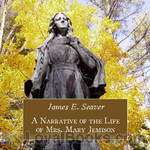 A Narrative of the Life of Mrs. Mary Jemison
A Narrative of the Life of Mrs. Mary Jemison
Mrs. Mary Jemison was taken by the Indians, in the year 1755, when only about twelve years of age, and has continued to reside amongst them to the present time. Containing an account of the murder of her father and his family; her sufferings; her marriage to two Indians; her troubles with her children; barbarities of the Indians in the French and Revolutionary Wars; the life of her last husband, and many historical facts never before published. | |
By: Francis Fisher Browne (1843-1913) | |
|---|---|
 Every-day Life of Abraham Lincoln
Every-day Life of Abraham Lincoln
This detailed biography covers the places in Lincoln's life: Indiana, Illinois, Washington. It also traces his various roles as storekeeper, serviceman, state legislator, lawyer, politician, Republican Party leader, and of course President. Along the way we learn about his days of hardship as a beginning lawyer, his love for Anne Rutledge, such myths as "Honest Abe," and his deep concerns over the issue of slavery. The author uses Lincoln's correspondence with others to show his personality traits and opinions about topics of his world. | |
By: Julius Caesar (100 BC - 44 BC) | |
|---|---|
 "De Bello Gallico" and Other Commentaries
"De Bello Gallico" and Other Commentaries
| |
By: George Rawlinson (1812-1902) | |
|---|---|
 History of Phoenicia
History of Phoenicia
| |
 The Seven Great Monarchies Of The Ancient Eastern World
The Seven Great Monarchies Of The Ancient Eastern World
| |
By: Annie F. Johnston (1863-1931) | |
|---|---|
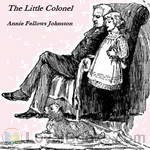 The Little Colonel
The Little Colonel
The scene of this story is laid in Kentucky. Its heroine is a small girl, who is known as the Little Colonel, on account of her fancied resemblance to an old-school Southern gentleman, whose fine estate and old family are famous in the region. (Introduction taken from original book.) | |